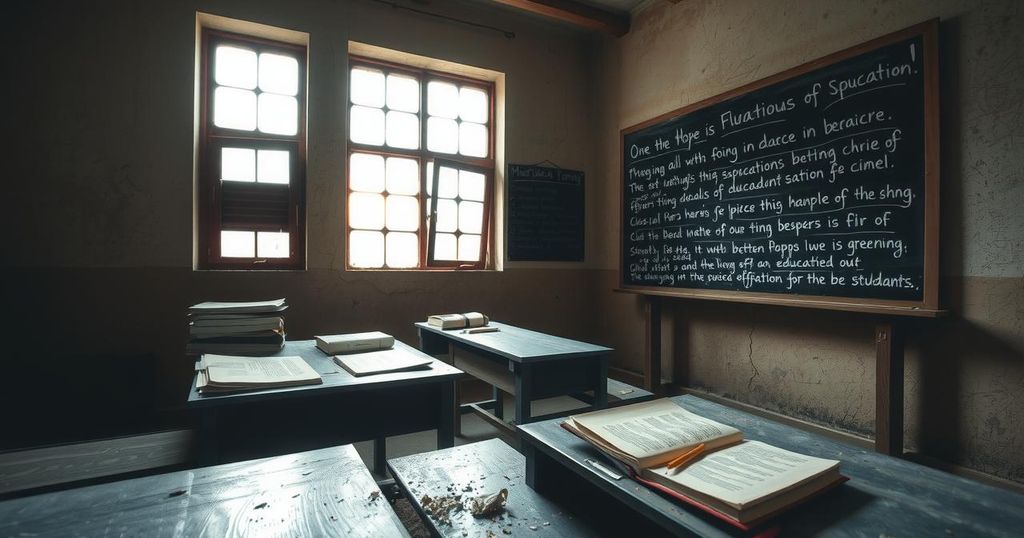China’s Rural Poor: Doubts About Education’s Role in Transforming Lives
In rural China, an emerging sentiment among farmers suggests a decline in faith in education’s transformative power. They are opting to limit their children’s education to compulsory schooling, primarily due to concerns over the educational system’s relevance and costs. This trend may signal a human capital crisis if it continues.
Recent observations indicate a growing sentiment among farmers in rural China regarding the perceived ineffectiveness of education in enhancing their lives. Huang Lifen, a lecturer at Shaanxi Normal University, noted that parents in her hometown of Hubei have begun to forgo higher education for their children. This shift arises not from a belief in the futility of knowledge but from concerns about the relevance and costs associated with the current education system.
China’s education system comprises nine years of compulsory schooling, which includes six years of primary education and three years of junior high. Following this period, students face significant competition for entry into high schools and higher education institutions. Historically, the societal belief has been that education and hard work can foster social mobility, a principle that has been championed since the reforms established by Deng Xiaoping.
The emerging perspective among rural families reflects a potential crisis in human capital development in China. Parents are increasingly questioning the value of extended education due to its perceived misalignment with their needs and the associated financial burden. This sentiment could hinder social mobility and economic progress in rural areas if left unaddressed.
Original Source: www.scmp.com








Post Comment